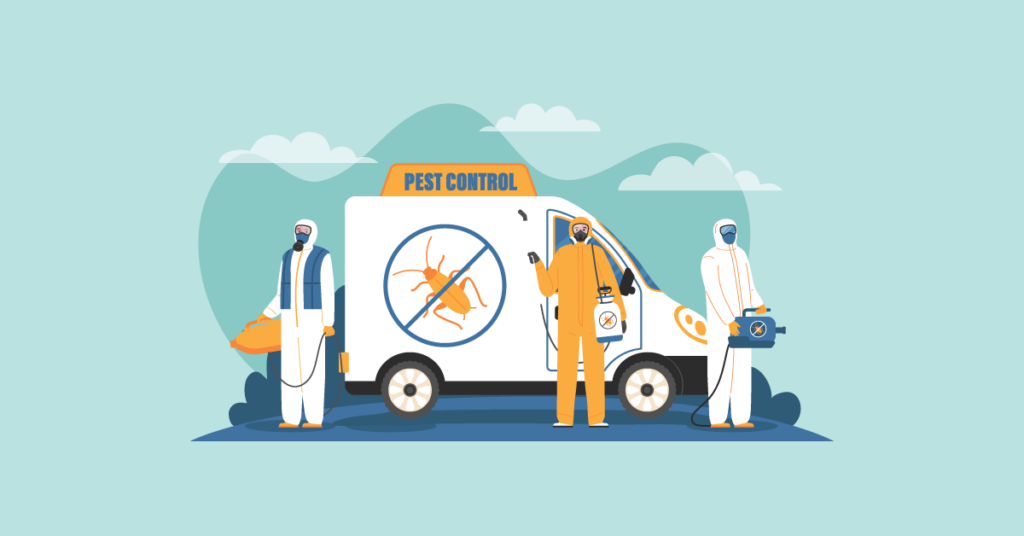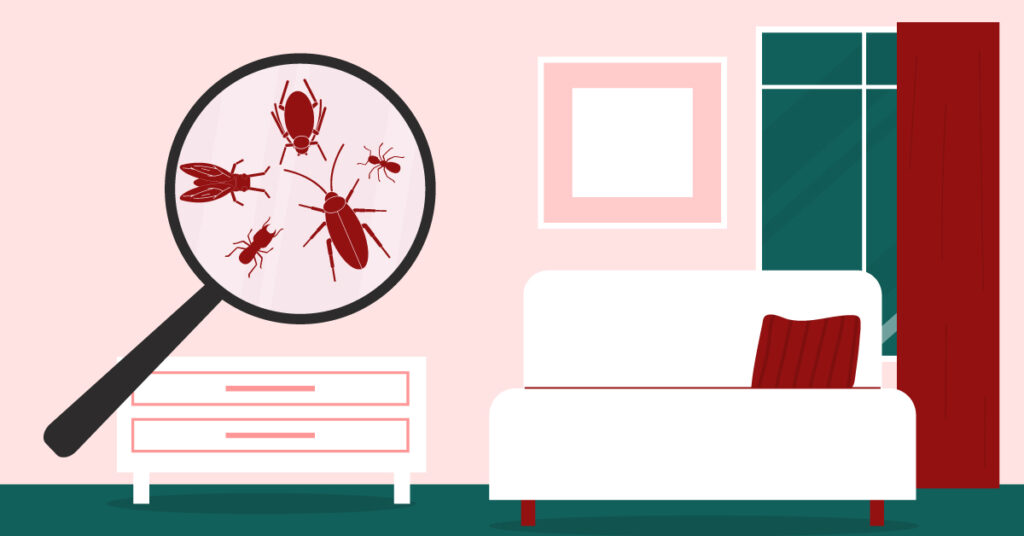When tiny pests appear in a house, most people deal with it themselves without overthinking. After all, they’re not alone in this situation. According to Consumer Affairs, over 60% of homeowners have issues with ants, and almost 40% have had to deal with mice.
But is dealing with it themselves the right approach, or should they consider bringing in pest control experts? Of course, the answer to this question is dependent on several factors. This article will help you evaluate the situation and decide whether pest control services are worth the money.
When Is It Necessary to Hire a Pest Control Expert?
Sometimes, clearing up a small infestation manually is the best approach. For example, a few ants getting in from the garden is a simple problem a homeowner can solve on their own with a bit of ant powder. However, they might still feel tempted to DIY the situation when it becomes a more significant problem. After all, they’re perhaps not keen on having large amounts of chemicals sprayed around their home.
However, there are some situations where it’s imperative to call in the professionals. For example, some pests cause damage to property, such as:
- Termites
- Carpenter ants
- Raccoons
- Rats and mice
These can all cause damage to walls, roofs, HVAC systems, electrical wiring, and drywall insulation. Other pests can cause diseases or give painful bites, such as:
- Fire ants deliver painful bites that burn
- Cockroaches contaminate food and trigger allergies
- Depending on the location, mosquitoes can spread malaria, West Nile virus, Zika virus, dengue fever, or encephalitis.
- Mice can spread hantavirus through their urine and feces, leading to potentially fatal complications.
These issues aside, large infestations of any pest are a challenge to remove and a significant drain on time. And, as we all know, time is money!
Benefits of Professional Pest Control Services

Although it may seem that paying for a professional is more expensive, that’s usually in the short term. If an entire infestation isn’t eliminated, those pests will return in no time. Eventually, they have to call in a pest control company anyway. People might also use the wrong methods, providing poor pest control value. Here are a few reasons professional pest control services can do a better job.
Professional equipment
People might think that getting rid of some ants only requires store-bought ant powder and, maybe, squashing some under their shoes. However, there’s more to it than that. Deploying pesticides is risky and requires professional equipment most homeowners won’t have. Additionally, some pesticides are not available for the public to purchase. Also, consider that some pests carry diseases – expert pest controllers have the equipment to protect themselves.
Trained professionals
As well as having the right equipment, pest controllers have the training to use it properly. They also have experience and know what gear and chemicals work best for specific pests. Trained pest controllers may also notice signs of a deeper infestation than previously suspected. They know the signs and where to look for hidden nests and hives.
Proactive control
Once most people get rid of their pest problem, they may think that’s the end. However, the conditions that caused the infestation in the first place may still exist. Pest control experts can advise and prevent reoccurrence. They may also offer advice on avoiding problems with various other pests and put a plan in place.
What Is Involved in Professional Pest Control?
Pest removal is a complex and challenging job. It requires plans that consider the severity of the infestation and the specific creatures involved. The first thing a professional pest controller does is assess the problem. To accomplish this, an in-depth examination of the property is necessary. The experts are far more thorough at this than the average householder. After that, it’s time to make a plan.
The plan is very straightforward and involves a quick pesticide spray or laying some traps. On the other hand, it may extend to tenting and fumigating your property. Most pest control companies have plans to deal with cockroaches, ants, mice and rats. However, some problems are harder to sort out. For example, bedbugs and ticks are often tough to eliminate and require specialist services.
In addition, not every pest control company is equipped to deal with every problem, so it’s good to shop around for one that can deal with particular situations. For example, raccoons are not generally an issue that a one-person pest control company is prepared to deal with.
Once the plan is in place, technicians then treat the problem, implement measures to prevent future issues, and arrange follow-up visits. Follow-up visits are something that any reputable company does to ensure the problem is solved.
How Do You Choose a Professional Pest Controller?
Choosing someone to perform any professional service is a serious task. It’s best not to hire the first pest controller found with a quick google search. First, look for a selection of businesses offering their services in nearby areas and check if they provide solutions to specific problems. Next, ask for quotes and compare their prices to get the highest pest control value. However, the cheapest isn’t necessarily the one to go for. If a quote is considerably lower than all the others, it could be a red flag. They may not have the experience to do the job. Even worse, maybe they’re not a legitimate pest control business.
Not every pest controller advertising online is legitimate. It’s a good idea to check that they have a professional license and liability insurance. When pest controllers show up at the property, check that their license is up to date. If something does seem off, check online for independent reviews. Reviews on the business’ website are sometimes not genuine. Of course, if it’s possible to get a personal recommendation from someone trusted, that’s even better.
How Much Should Pest Control Services Cost?
The cost of pest control will vary considerably based on the severity and location of the issue. For example, companies operating in metropolitan areas tend to have higher overheads than those in rural areas. Removing a termite infestation spread through an entire property costs more than trapping a few mice. However, someone should get a rough idea of a few services.
A one-time visit is likely to cost between $350 and $500, whereas if multiple visits are needed, the customer may pay $150 to $300 for an initial assessment, with further visits charged at a lower rate. Owners want to have year-round visits, especially if they have a commercial property. In that case, monthly appointments will cost between $40 and $70.
All of these figures are approximate, and prices can vary tremendously. For example, bedbug infestations may cost anywhere between $300 and $5000, depending on the severity of the problem. However, pest control value is more than getting the best price. Peace of mind is invaluable.
Preventing Pest Infestations
Of course, the question of pest control is avoidable if the problem is mitigated in advance. Here are a few simple measures to help prevent the incursions of common pests:
- Never leave food on countertops and wash dishes right after eating
- Clean and deodorize garbage disposals regularly
- Store all food in fully sealed containers
- Dispose of food waste in tightly sealed garbage containers
- Avoid used furniture—this is often a source of bedbugs
- Eliminate garden and yard clutter
- Eliminate plumbing leaks and ensure to clean and around the toilet regularly
Local pest control experts can perform inspections on homes and give the owner more advice around specific problems.




